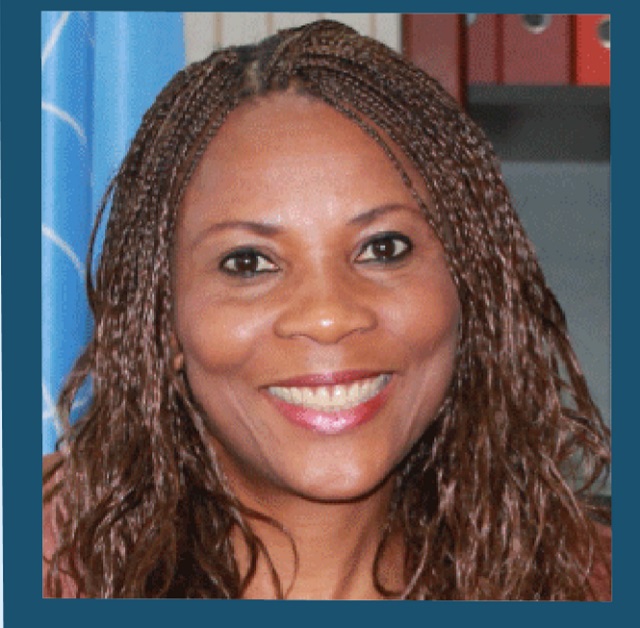
Ahunna Eziakonwa is the UN Assistant Secretary- General and Director of the Regional Bureau for Africa of the UNDP. She talks to Kingsley Ighobor on COVID-19 and its impact on African economies.
What is the impact of COVID-19 on Africa so far?
Well, it has become clear now that COVID-19 is not just a health crisis, it is also a development pandemic as well, with catastrophic impacts globally and especially in Africa. Even before COVID-19 hit, there were many development challenges in Africa. Some countries such as South Sudan and the Democratic Republic of the Congo are emerging from conflict. In the Sahel region, countries are battling violent extremism. We have socio-economic challenges in the Lake Chad region and in the Horn of Africa after a locust invasion that compromised food security. We already have many healthcare problems on the continent, HIV and AIDS being one of them. And it is not long ago that West Africa had to deal with Ebola, which also crashed economies and health systems and institutions in affected countries. Recovery for affected countries was ongoing.
The other side of that is that prior to COVID-19, Africa was seen as emerging. Despite the problems in some parts of the continent, a sense of promise and hope was starting to develop, with some of the highest performing economies being on the continent. We had a sense of an emerging demographic of young industrialists, people in financial technology developing mobile money. And we had recently signed the Africa Continental Free Trade Area (AfCFTA) agreement, which also boosted the confidence of the continent as a serious place for investment. The COVID-19 pandemic is shattering that hope, that promise, and that confidence.
By the numbers: Impact on economic growth?
We have seen the UN Economic Commission for Africa revise projections downwards, showing growth contraction of up to -2.6% from over 3% growth. This could push up to 27 million people into poverty. We have now a region that is stripped of its own sources of financing for development. Oil prices that were already low have tumbled yet over 40% of Africa’s exports is in that industry. Countries like Nigeria, Algeria, Angola, Equatorial Guinea and Gabon that are key exporters of oil are really suffering. Also, prices of commodities such as coffee and cocoa are now projected much lower than previously, and overall trade has dropped by at least 30%.
We have reduced remittances, which are a key source of household incomes and a major share of GDP in Africa—ranging from 5% of GDP to 23% in countries like Lesotho and more than 12% in the Comoros, Gambia and Liberia. The air transport sector that provides opportunities for a lot of small and medium enterprises and employs 6.2 million people on the continent, has been hit hard. And then of course we see Africa’s strongest companies and industries already showing distress.
We see a lethal combination of these losses. FDI could crash perhaps up to -15%. We don’t know the full extent of COVID-19 impact, but projections look extremely severe for the continent.
Is it time to panic?
Panic is never a word that should accompany good leadership and a spirit of resilience. If Africa goes into panic, it weakens. It must resolve to fight. So, despite the COVID-19 rising numbers, it’s time to get serious on how to get ahead of the curve. However, African countries still have a fighting chance because we had a bit of a head start compared to other regions—a chance to either get ahead of the curve or flatten the curve.
How is the UN helping out?
The UN system has come together under the leadership of the Secretary General António Guterres who recently released a framework for addressing socioeconomic impact of this pandemic. This is, an umbrella platform to bring all the different strands together, recognizing that this is not just a health or economic crisis but has a multi-dimensional impact on countries.
So, WHO is leading on health response and FAO on food insecurity because people are hungry and malnutrition is rising. The humanitarian side is led by OCHA. And then you have the socio-economic impact that UNDP has been asked to lead. The socio-economic piece is particularly important for Africa because we are talking about shuttered economies. UNDP is leading the socio-economic impact recovery aspect at the country level, supporting countries to first generate evidence of impact and then make informed decisions on how to tackle it.
What areas will UNDP focus on to help countries recover from this pandemic?
What is happening now is unpredictable, uncertain and dynamic. We must understand how COVID-19 is impacting different parts of society: youth, women, the vulnerable groups, and so on. It means looking at climate change opportunities. We are helping governments get all necessary information and to devise recovery strategies. We are also helping governments to stay in business. This crisis has led to the lockdown of governments. How then do they continue to operate and work virtually? In some cases, UNDP has helped to develop business continuity plans and provided digital tools to government so that they can continue to operate. UNDP is also helping countries’ activities around health systems. In the area of social protection, the measures in place need to include the protection of the vulnerable in the society. So, we are helping conduct assessments to see who is vulnerable and who needs what. We are (also) supporting the Africa Centres for Disease Control and Prevention (Africa CDC), which the African Union has appointed to be at the front of the response.
****
CLICK TO READ ONLINE MAGAZINE HERE
 The Independent Uganda: You get the Truth we Pay the Price
The Independent Uganda: You get the Truth we Pay the Price




Yes that’s a great idea but me and my family are lucking what to eat.
So please we need ur help.
0788807470